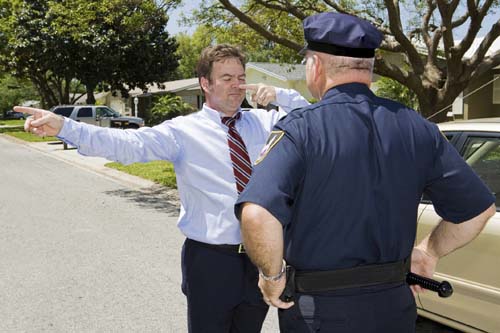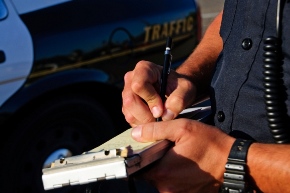One particularly devastating form of driving violation is a DUI. DUI charges stem from drivers who operate a vehicle while drunk or otherwise intoxicated. This is a serious driving mistake because intoxicated drivers are not in full control of their faculties. This impairment therefore makes vehicle operations unsafe. It is dangerous not only to the affected driver but others on the road.
Should you receive a DUI, you will likely face various extremely serious penalties. These might include things like license suspensions, jail time and increased insurance prices. Not least, it may lead to the requirement to get an SR-22. You don’t want to get these penalties, particularly the SR-22. They could each lead to severe financial punishment.
Why is Intoxicated Driving Unsafe?
One way to think of intoxication is as using an overwhelming substance. It muddles a driver’s faculties and often reduces their ability to process information. Some of the effects of intoxication might include:
- Dizziness, blurred vision and problems hearing
- Reduced attention span and memory retention
- Amnesia and blackouts
- Reckless or impulsive reactions
- Decreased hand-eye coordination
- Headaches
- Breathing difficulties
And more.
It’s easy to see why getting behind the wheel while intoxicated might lead to problems. If you do not have alert, coordinated control of your vehicle and actions you could make mistakes. This could lead to accidents, injuries or even death, not just for yourself but for others. In 2016, nearly one-third of all traffic deaths in the U.S. involved an intoxicated driver. This is a signal for concern for all drivers.
The Penalties of Drunk Driving
Given the risks associated with drunk driving, it’s easy to see why it carries such stiff penalties. Every state institutes different penalties for DUI charges. Some might include:
- License suspensions or points on the license
- Revocation of vehicle registration
- Arrest, jail time, house arrest or probation
- Vehicle monitoring. This might include instances where you must blow into a breathalyzer device to start your vehicle.
- Financial penalties
And more.
DUI arrests might also impact your ability to get affordable car insurance. Many drivers don’t think about how an insurance policy
After a DUI, you might face an increased policy premium, or even a denial of your coverage. Many drivers don’t think about what a DUI might mean to their car insurance providers. Car insurers determine premiums based on the risks that drivers present to them. It’s easy to understand how DUIs can easily demonstrate to your insurer that you are a high-risk operator.
Avoid SR-22 Penalties
After a DUI, the authorities might require you to get an SR-22 form. If you’ve never heard of an SR-22, now is a good time to familiarize yourself. You don’t want it to happen to you.
An SR-22 is a form that attaches to your existing car insurance. The form serves as a verification for the state that you have car insurance. Your insurance agent will send the DMV the SR-22, and you will have to keep the form active for a period of years.
States that use the SR-22 penalty can, in effect, force drivers to carry auto insurance. Like your insurer, your state will view a DUI charge as a signal that you present high operating risks. Therefore, they’re likely going to want you to carry car insurance. Your coverage will help guarantee to the state that you don’t pose as high a risk to other drivers.
Keeping your SR-22 will need attention. First, you make have to make adjustments to your existing insurance to qualify for the form. Afterwards, you must not let the policy lapse. If you do, the SR-22 period will likely start over. Other penalties might also arise.
Avoid Drunk Driving and Become a Safer Driver
You can avoid an SR-22 by being a safe driver. In the case of intoxicated driving, you can solve the problem through only one action—not driving drunk. To avoid this, take common-sense actions:
- When drinking socially, take public transportation, a car service or a taxi.
- Ask a member of your party to serve as a designated driver. That person will not consume alcohol. They’ll be your chauffer to make sure everyone gets around safely.
- If you drive your car to an event, but become intoxicated, don’t drive home. Give your keys to a trusted, sober friend and ask them to drive you home. Or, leave your car at the establishment overnight and claim it later.
- Even if you have one drink, realize that it might impact your faculties. Never drink without eating food and drinking water to help absorb the alcohol. Even if you feel fine, you might still become intoxicated. Should you make the choice to drive, only do so at your own risk.
Avoiding drunk driving will not only keep you safe, it will also protect others on the road. Driving while intoxicated is one of the most dangerous scenarios on the road. However, if you don’t do so, you’ll do your part to create safer roads for us all. Call us for a Chicago auto insurance quote at 877-999-2644.


